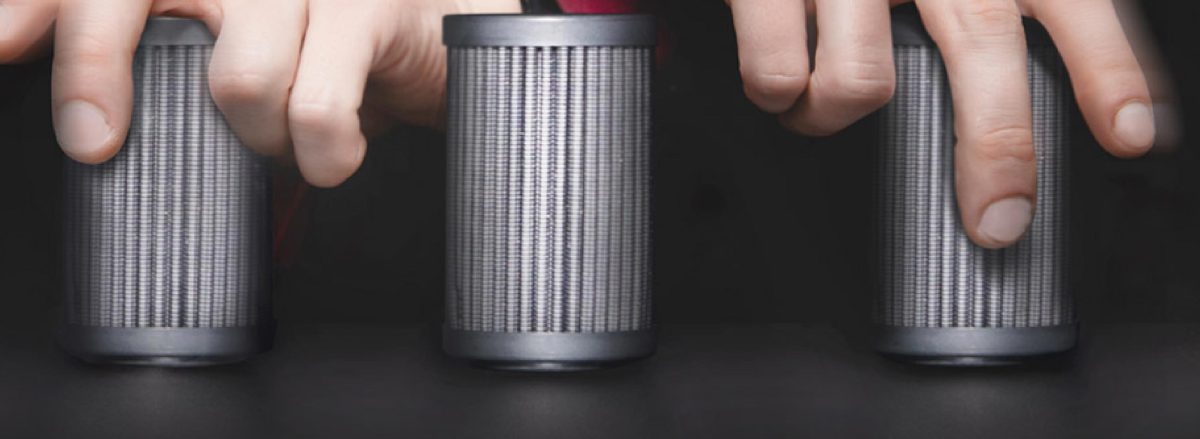If you’ve ever waited too long to change the oil in your vehicle, you know that every filter has its limit. At some point, the dirt, grime, and debris will clog up the filter, and the oil will get dirtier the longer it flows through it. Now, that might not be as big of a problem on your vehicle. Who hasn’t pushed past the recommended mileage limits for oil changes? But on industrial machinery, well, that’s a different story.
Oil filtration for heavy-duty equipment or industrial machinery is a whole different ball game. Oil filters are a critical tool for maintaining lubricant cleanliness and efficiency. Without these tools, harmful contaminants can enter your machinery and cause damage, leading to costly repairs and equipment downtime. But oil filters are a lot more expensive for this type of equipment. According to Machinery Lubrication, some equipment fleet owners spend over $1 million a year on filters, and a single oil filter element can sometimes cost more than $1,000.
Choosing the right filter
Budgeting for your oil filtration costs can certainly add up. As a result, it may be tempting to opt for cheaper filters instead of high-end filters. However, filter testing shows that premium high-performance filters may be the best option for protecting your equipment. But how do you know what type of filter works best? Here are some questions to consider when comparing filters.
- Which filter is more efficient?
- Which filter has the lowest flow resistance?
- Which filter is higher quality?
What do labs look for?
Labs that test filters can provide valuable feedback that can help you choose the right filter and ensure that your filtration equipment is performing correctly. So, what factors will a lab test for?
- Flow rate: This is the measured pace at which the oil will pass through the filter in a certain period
- Filter Media: How effective the filter is at catching contaminants as the oil passes through
- Dirt holding capacity: The number of contaminants that the filter can hold before it needs to be replaced
- Capture Efficiency: How well the filter can capture particles of different sizes, also known as the beta ratio
Filter manufacturers provide specifications on these parameters. Most manufacturers test their filtration equipment by running their filters through several tests. They measure various lubricant standards before and after passing through the filter in multiple conditions to determine how well their product performs. The problem with this approach is that filter performance data is often skewed in favor of the manufacturer, as the manufacturer only wants to publish data that supports their product. That’s why if you are concerned about filter quality, it’s still best to get your filters tested by an independent lab.
How are filters tested?
There are plenty of ways to test filters. One of the most common methods is a multipass filter test. A multipass machine can test various size filters with different flow rates and configurations.
The most significant benefit of multipass testing is determining if the filters meet the International Organization for Standardization (ISO) cleanliness code. As it’s commonly known, the ISO code is a tool that equipment operators and fleet managers can use to determine system cleanliness. In addition, manufacturers use this tool as a standard to develop their products.
Does filter testing save you money?
By now, you’ve probably got a sense that the world of filters is a lot more complicated than you initially thought. As a fuel and lubricant supplier, our role is to provide you with quality supplies, including filters. But how much can filter testing save your business? Here’s an example.
Imagine that a company spends nearly $180,000 a year on one type of hydraulic filter. The equipment manager wants to cut back on expenses, so he zeroes in on this filter expense. He does some research and finds three cheaper alternatives. The company has used the most affordable option before, but the other two are mysteries. So, the equipment manager sits down to compare the options. He asks all the questions we discussed earlier. What is the flow rate? Which filter has the lowest flow resistance? Which filter has better structural integrity? He considers all the options, but he still isn’t sure. How can he know which filter is best?
He decides that the best way to determine which filter is the right choice is to send the options for testing. After testing, the three filters each captured different levels of dirt. The highest-end filter captures the most dirt. So, he can now do the math based on the test results to see which filter will hold the most dirt and reduce the number of filters they will need each year. Based on the lab testing that he got done, he can switch out the current filter for this newer high-performance one and save the company thousands of dollars on overall filter expenses for that one hydraulic filter. All of these savings come because he chose to get the filters tested. The testing that he got allowed him to compare the performance of the filters for his equipment needs. So, even though the high-performance filter costs more than the budget option, it performs better, which reduces the company’s overall filter needs.
This example may be fictional, but it highlights the importance of choosing the right filter with the correct data. The more you know about your filtration needs, the better choices you will make. As a fuel and lubricant supplier, we always recommend choosing your supplies based on your equipment needs and working conditions, even when it comes to filters. Make informed choices that will save your business time and money and keep your equipment in good working order. As your fuel and lubricants supplier, we are here to help you select the right filter for your needs!
